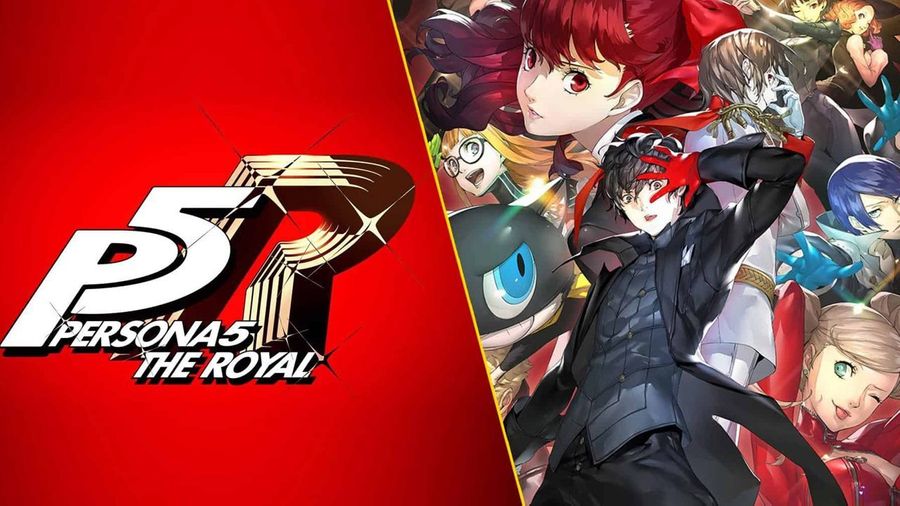When I was going into Persona 5 Royal, I had no idea of what to expect. I had been told the standard version of the game, Persona 5, was excellent. I picked it up on a whim at the same time as Animal Crossing.
What I found was a slice of pure video game magic.
There - now you don't have to read the rest of this article. Which is good, because there is a lot of retread from the original Persona 5. So people reading this who have played Persona might be able to spot the truckload of additional features introduced in P5R.
Persona 5 puts you in the comfortable shoes of [INSERT PROTAGONIST NAME HERE], a student wrongly accused of a crime he didn't commit. Through the course of this enormous game, you will learn about him, the world around you and experience just like Cottee's chocolate topping - thick and rich.
Along the way, you will meet a smorgasbord of characters from all walks of life - whilst trying to find time to increase a set of social stats AND explore the 'metaverse' - a world constructed of the thoughts and twisted desires of the people. Immediately you find that not an inch of Persona 5's massive world is wasted. Everything has a purpose - a reason.
From the outset the game is divided into two distinct, but linked, gameplay loops. You have the high-school life simulator loop and you have the metaverse loop. The linked gameplay loops are very much like that of XCOM - which makes the game moreish and helps to build investment in the character and the world.
The majority of the game takes place in the high-school simulator component. You explore a recreation of ultra-modern Tokyo, dripping in atmosphere. There are shops and locations of all different types - and each one has a purpose, however minute. You buy and sell items, visit locations to build "social stats" and meet with confidants - characters you meet in the story.
The game works around a "limited time mechanic" - which adds weight to proceedings. Spending time with a confidant, working a part time job, exploring the metaverse - these things all take time, which means the player must carefully weigh up the benefits of their actions. This creates a sort of meta-game, where the player must extract as much value as they can out of their limited time - for there is never enough. This helped keep me invested even as some tasks and locations became obsolete - for there were always more things to do.
The second gameplay loop is that of the 'metaverse' - where all your work in the life simulator comes to fruition. There are both a series of story dungeons - called 'Palaces' - and a dungeon which represents the collective unconcsious of the general public - cleverly modeled after a subway network. You fight enemies pulled from the mythology of different religions and traditional literature - something which would no doubt make a fundamentalist vomit blood and declare it a threat to the kids - if they knew it existed.
The combat system begins simply, but expands quickly and there's a lot here. You have elemental attacks, guns, melee attacks, status conditions and the baton-pass system - a very interesting team-focussed mechanic. Which of course, can be improved in the other gameplay loop. These functions are not over-tutorialised, but nonetheless well-explained. This makes the combat engaging - even when engaging your inner power fantasy and crushing foes much lower level than you.
But we're just getting started - being as blessed as he is, our protagonist has the ability to capture monsters and use them to battle. This has been connected to Pokemon, but those people are idiots and should be punched - it's much deeper than that. Each 'Persona' - as they're called - has different strengths and weaknesses, abilities and stats. Where it gets different is that these 'Personas' can be merged together to create new, stronger Personas. They can also be turned into items, or 'skill' cards, used to pass abilities onto your favourite Persona. But because these Personas are just a component of the system and not the whole system, the comparison to Pokemon is simplistic and in my considered opinion, misinformed. Not that those pundits will ever read this.
There's more to the metaverse loop, too - confidants you meet in the real world can, through 'ranking up' provide your protagonist and your team with unique skills and traits. Sometimes it's as simple as getting more money after a fight, or something more complex, like being able to make a once-per-battle special attack which incapacitates a component. My one nitpick is that some of these traits are simple, where others are not useful at all. Even then that is just one part of the confidant system.
Which then leads into the jewel of the crown of Persona 5. Its story and writing.
When I went into Persona 5, I had a negative attitude toward spoilers. I considered people to be precious for wanting the world to avoid mentioning anything about their favourite IP. I guess this was my watershed moment.
I avoided the subreddit. I didn't look up strategy guides. I asked for minimal advice about the game or its mechanics. I let myself make mistakes, and didn't bother to save-scum. I realised what a difference it makes when every part of the game feels fresh and new. But the difference-maker was Persona 5's story. It's deep and layered and rich.
What starts off as a black and white story about evil people doing evil things who should be punished, delves into complex topics with no right or wrong answer. It speaks to the danger of mass media and the role the media plays in shaping narratives in our world. It asks hard questions of the protagonist and eventually the player. Around this central pillar is a series of strongly developed characters, tying into the central plot at various points. Some are better written than others, but they are all great and capable of truly stirring performances.
A special mention must go to the additional chunk of story content provided by Persona 5 Royal. For once I do not wish to spoil - but it is truly the triple A platinum standard in story and writing. A complex tale with a sympathetic villain - a hero (and a player) who may not be doing the right thing and a deep dive into psychological trauma. It is (and I do not use the term lightly) a masterpiece and the cherry on top of a fantastic game. It is memorable, emotional and moving.
It feels a little anti-climactic at this point to talk about Persona's visual design, but it is an important part of the game. Visual design aids immersion, after all. Persona's visual design feels like that of a 90s comic book - lots of jagged lines and heavily stylised bold fonts. There are some very well-drawn animated sequences at key points and the visuals are clean and tidy. Everything feels in the right place, whilst also tying into the game's red and black color set, which looks modern and clean. Overall the game's visuals are excellent and are a big help in assimilation of Persona's significant story and combat components.
A wise man once said that there is no perfect video game. Only perfect video games. Persona 5 is one of them. An impossibly deep game, with stylish visuals, turn-based combat that is simple, yet varied and engaging, social RPG mechanics which add immersion and investment to gameplay and all contained within the best video game story I have experienced to date. I recommend Persona 5 Royal with every fiber of my being. It is a perfect game.
Catch you next time,
Vulkan
Did you like this article? Did you hate it? Go over and keep the discussion going on the official Vulkan's Corner facebook page! - whilst you're at it, leave a like!

